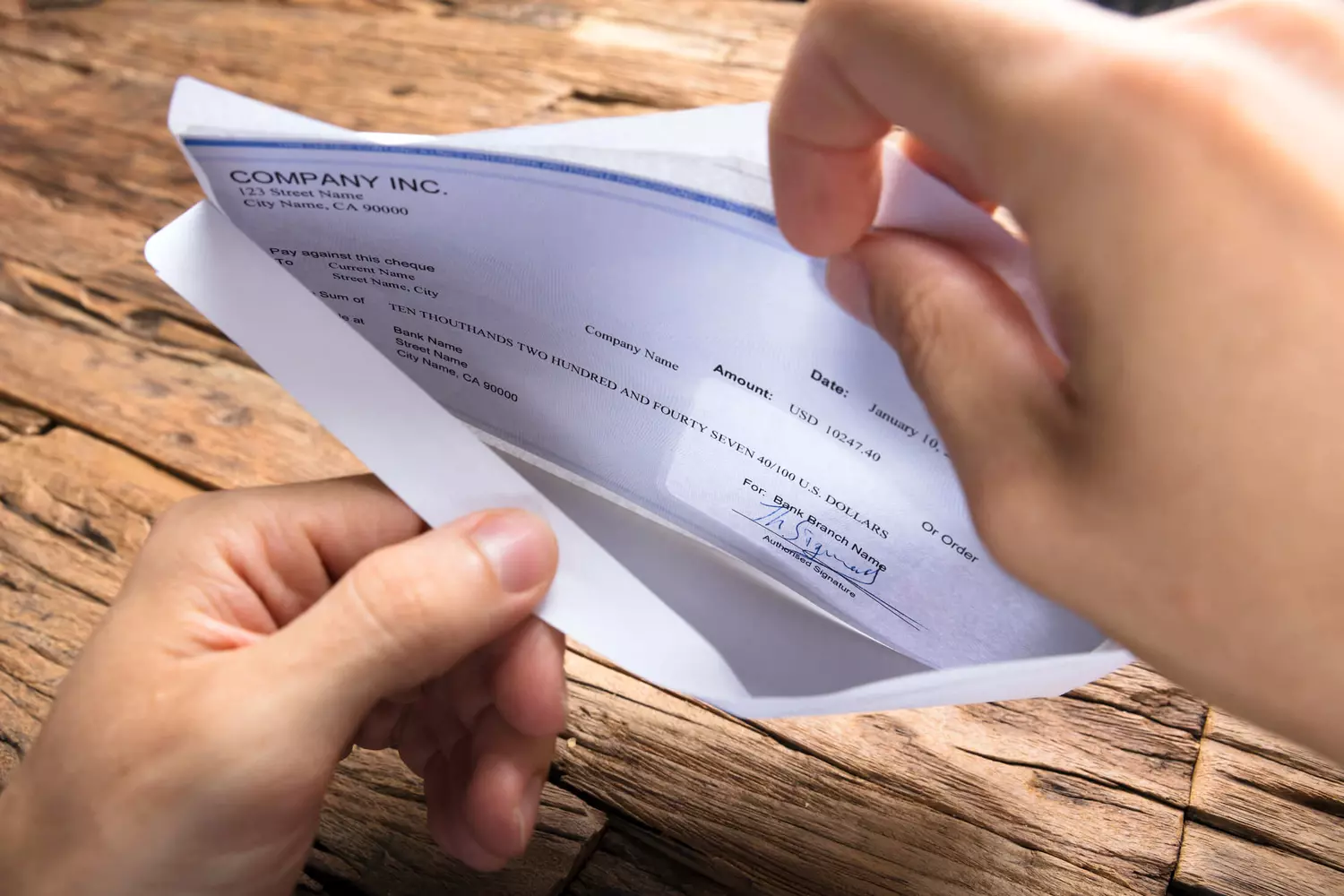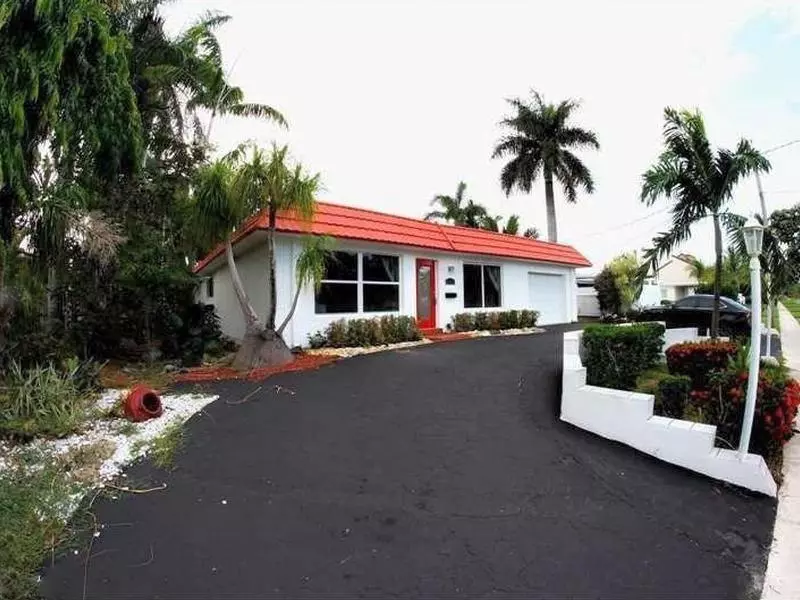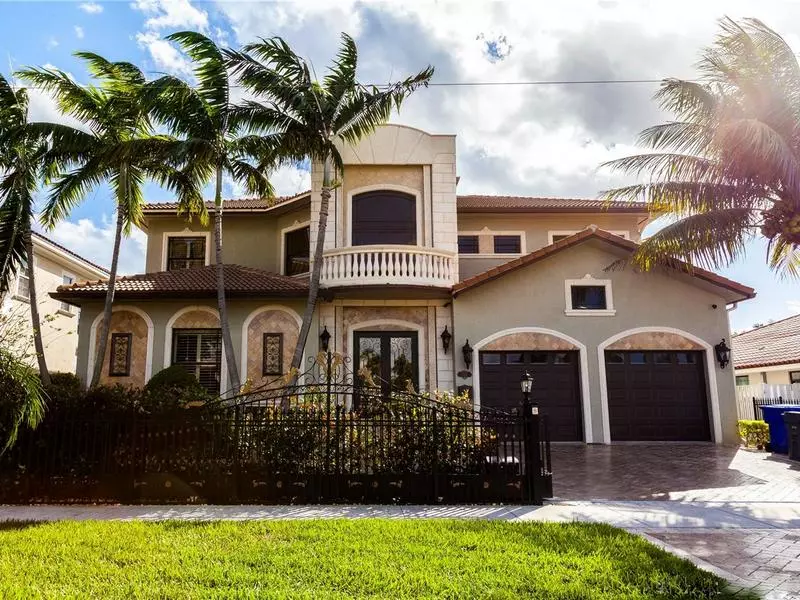Buying real estate in the USA seems like a daunting task: laws, taxes, mortgages, hidden costs — how do you navigate it all? Even if you have experience buying property in another country, the American system can surprise you with its peculiarities. For example, why is the property tax higher in some states than in others? Or how can a foreigner get a mortgage without a US credit history?
In this article, we've compiled the 20 most frequently asked questions from buyers. From choosing a property to legal nuances — briefly, to the point, and without unnecessary jargon.

1. Who is eligible to buy real estate in the USA?
In the USA, buying real estate is available not only to citizens but also to foreigners. Legislation does not restrict ownership of residential or commercial properties for non-residents, and buyers from other countries can purchase real estate as individuals or through legal entities.
However, there are a few nuances to consider:
- Citizenship and residency do not affect the ability to buy, but they can affect taxation and mortgage terms.
- When buying on behalf of a company, it's important to choose the right form of ownership, as tax rates and legal liability can vary.
- Although buying real estate does not grant the right to a visa or residence permit, property ownership can be a plus when applying for long-term visas, such as B1/B2.
If the buyer plans to stay in the USA for an extended period or rent out the property, it's advisable to consult with a tax specialist in advance to choose the optimal ownership structure.
2. What types of real estate are available to foreign buyers?
Foreign buyers can purchase almost any type of real estate in the USA:
- Residential (apartments, houses, townhouses, condos).
- Commercial (offices, warehouses, hotels, retail spaces).
- Land plots (with restrictions in some states).
An important point is buying property in buildings with homeowners' associations (HOAs). Some condos or gated communities may have internal rules restricting foreign ownership or renting out properties.
Also, some states, such as Texas, Florida, and California, may have restrictions on foreign ownership of agricultural land. Therefore, it's essential to check for potential restrictions in a specific region before choosing a property.
3. What documents are required to buy real estate in the USA?
To buy real estate in the USA, a foreigner does not need citizenship or a local residence permit, but a number of documents will be required:
- Foreign passport — the main document proving the buyer's identity.
- Proof of funds — bank statements, tax returns, or other documents confirming the legality of the money.
- Contact address — in the USA or abroad, which will be used to send legal documents.
- US bank account (recommended, but not always required) — facilitates financial transactions, payment of taxes and utility bills.
- Individual Taxpayer Identification Number (ITIN) — if you plan to rent out the property or receive income in the USA.
If the transaction is carried out through a trustee or company, additional documents may be required, such as a power of attorney or company incorporation documents.
4. Can a foreigner get a mortgage in the USA?
Yes, but the conditions for foreign buyers differ from those available to US citizens and residents. Many American banks offer mortgage loans to non-residents, but with specific requirements:
- Down payment — usually 30–50% of the property value.
- Interest rate — higher than for citizens and residents (on average 1.5–3% higher).
- Proof of income — bank statements, tax returns, income certificates from the country of residence.
- Credit history — if the buyer does not have a US credit history, banks may require additional guarantees, such as the availability of assets.
ITIN (Individual Taxpayer Identification Number)—mandatory for mortgage registration.
It is also worth noting that not all banks work with foreign borrowers. It is best to consult with a financial specialist in advance to select the optimal program.

5. What taxes do you need to pay when buying real estate?
When buying real estate in the USA, the main taxes are:
- Transfer Tax — depends on the state and county, on average 0.1–2% of the property value.
- Annual Property Tax — from 0.3% to 3% depending on the region.
- Income tax (if the property is rented out) — the rate depends on income and the presence of a tax agreement between countries.
There may also be additional fees, such as a transaction registration fee or escrow agent fees.
6. What additional costs should be considered when buying?
In addition to the cost of real estate, there are several additional costs:
- Realtor services — usually paid by the seller, but the buyer should consider the costs of a lawyer or consultant.
- Legal services — document processing, transaction due diligence (from $500 to several thousand dollars).
- Escrow account expenses — on average 1–2% of the property value.
- Real estate insurance — mandatory for mortgages, but recommended for cash purchases as well (the cost depends on the property).
- Money transfer fee — if funds are transferred from another country, there may be additional fees.
These costs are important to consider when budgeting, as they can amount to 5–10% of the property value.
Salary in the USA: How Much Do Americans Earn on Average?
7. How does the process of buying real estate in the USA work?
The process of buying real estate in the USA consists of several stages:
- Property Selection — finding a suitable home taking into account the budget, purchase goals and legal restrictions.
- Offer and Negotiations — the buyer makes an offer, the seller can accept, reject or propose counter conditions.
- Purchase Agreement — after agreeing on the terms, a preliminary agreement is signed and a deposit is made (usually 1–3% of the value).
- Due Diligence — home inspection, valuation, document verification.
- Opening an Escrow Account — money is deposited into it to complete the transaction, funds are transferred to the seller only after all conditions are met.
- Mortgage Processing (if required) — the bank checks the documents and approves the loan.
- Closing — signing the final documents, transferring ownership and registering the transaction with local authorities.
The process takes an average of 30–60 days if the transaction goes without delays.
8. What are the peculiarities of buying real estate in different states?
Real estate taxes in the US vary by state. The same goes for the laws. Here are some key differences:
- Property Taxes — highest in New Jersey, Illinois and Connecticut (up to 2.5% of the property value per year), lowest in Hawaii, Alabama and Colorado (about 0.3%).
- Restrictions for Foreign Buyers — some states (for example, Texas) have restrictions on the purchase of agricultural land.
- Rental Market Regulation — New York and California have strict tenant protection laws, while Florida's rental market is less regulated.
- Housing Costs — the most expensive homes are in California, New York and Hawaii, affordable housing can be found in Texas, Georgia and Arizona.
Before buying, it is important to study local laws to avoid unexpected costs.
9. Is it possible to buy real estate remotely, without coming to the USA?
Yes, foreign buyers can purchase real estate remotely. This will require:
- Trustee — a lawyer or real estate agent who will represent the buyer's interests.
- Electronic Signature — most documents can be signed online.
- Escrow Account — all transactions go through a special protected account.
- Remote Property Inspection — through photos, videos, virtual tours or an inspector.
- Apostilled Documents — if the transaction requires signing in the buyer's country.
After the transaction is completed, the documents are sent by mail, and access to the property can be arranged through a management company.
10. Can real estate be registered to a legal entity?
Yes, in the USA, foreign buyers can purchase real estate both as individuals and as legal entities (for example, LLC — Limited Liability Company). Buying through a company can be beneficial for several reasons:
- Tax Reduction — you can optimize taxation, especially if the property will be rented out.
- Confidentiality — the owner's name will not appear in public registers.
- Asset Protection — if the property is registered to an LLC, in the event of lawsuits, the owner's personal property will be protected.
However, buying through a company requires additional expenses — LLC registration, accounting support, and annual taxes. The decision on the form of ownership is best made taking into account the purchase goals and consultation with a lawyer.

11. Does buying real estate give the right to a visa or residence permit?
No, buying real estate in the USA does not in itself give the right to a visa or green card. However, there are several options in which owning real estate can help in obtaining long-term residence:
- Tourist visa B1/B2 — owning real estate can be an argument in favor of issuing a visa, but does not guarantee its receipt.
- Business visa E-2 — if real estate is purchased for business (for example, a hotel or rental), you can apply for an investor visa, but this requires significant investments.
- Immigrant visa EB-5 — if real estate investments exceed $800,000 and create jobs, you can apply for a green card.
For long-term stay in the USA, it is worth considering alternative ways of immigration.
12. How to avoid fraud when buying real estate?
Despite the developed real estate market, fraudulent schemes occur in the USA. To minimize risks:
- Work with licensed realtors and lawyers — check the agent's registration with the National Association of Realtors (NAR).
- Do not transfer money directly to the seller — all payments must go through an escrow account.
- Check the legal purity of the property — before buying, make sure that the property has no debts, liens or disputes.
- Be careful with too low prices — if the price is significantly lower than the market price, this may be a sign of fraud.
- Sign documents only after verification — do not trust verbal promises and do not sign contracts without consulting a lawyer.
By following these precautions, you can avoid problems and protect your investment.
13. What are the advantages and disadvantages of buying real estate in the USA?
Buying real estate in the USA can be a profitable investment, but it is important to consider both the pros and cons.
Advantages:
- Stable Market — real estate in the USA is in high demand, especially in large cities and popular tourist destinations.
- High Liquidity — if necessary, housing can be sold or rented out.
- Developed Property Rights Protection System — transactions are carried out through notarized contracts and escrow agents, which reduces risks.
- Market Transparency — prices and information about real estate are available in open databases.
Disadvantages:
- High Taxes and Additional Costs — annual property taxes, maintenance costs, insurance and possible homeowners' association fees.
- Restrictions in Some States — for example, bans on short-term rentals or restrictions for foreign owners.
- Difficulties with Mortgages — it is difficult for foreigners to get favorable loan terms.
Before making a decision, it is important to calculate all costs and study the features of a particular state.
14. Can you rent out real estate? What are the restrictions?
Yes, foreign owners can rent out real estate, but there are several nuances:
- Short-term rental (less than 30 days) — regulated by state and city laws. In some places (for example, in New York and San Francisco), short-term rental without a special permit is prohibited.
- Long-term rental — possible almost everywhere, but the owner needs to consider tax obligations.
- Restrictions from Homeowners' Associations (HOA) — some residential complexes may have rules prohibiting rental.
You also need to remember that rental income is taxed, and in some cases, business registration or licensing may be required.
15. What are the costs of maintaining real estate in the USA?
After purchasing real estate, the owner needs to consider regular expenses:
- Property Tax — from 0.3% to 3% per year, depending on the state and county.
- Utilities — electricity, water, gas, internet (on average $100–400 per month).
- Home Insurance — if there is a mortgage, insurance is mandatory (from $500 per year).
- HOA fees (if any) — from $100 to several thousand dollars per month, depending on the level of the complex.
- Routine maintenance and servicing — on average 1–2% of the property value per year.
These costs are important to consider when calculating the return on investment.

16. Do you need to insure real estate?
Yes, although real estate insurance is not required by law, in many cases it is necessary:
- When buying on a mortgage — banks require insurance as a mandatory condition of the loan.
- To protect investments — insurance covers damage from fires, natural disasters, vandalism and theft.
- If the property is rented out — liability insurance can protect against tenant claims.
The cost of insurance depends on the region, type of housing and coverage. On average, it is $500–3000 per year. In high-risk areas (for example, in coastal areas), additional flood and hurricane insurance may be required.
17. How to resell real estate and what taxes will you have to pay?
Selling real estate in the USA requires taking into account a number of taxes and expenses:
- Capital Gains Tax — if the property is sold more expensive than it was bought, the tax is 15–20% for non-residents.
- State Transfer Tax — a property transfer tax, the rate depends on the state (usually 0.1–2%).
- Realtor commission — the seller usually pays the agent's commission (5–6% of the transaction price).
- Costs of preparing the property for sale — repairs, cosmetic renovation, marketing.
If the property has been owned for more than 5 years, you can reduce the tax rate with the help of deductions.
18. Can real estate be inherited?
Yes, real estate in the USA can be inherited, but it is important to consider the tax consequences:
- Estate Tax — for non-residents, a rate of up to 40% is charged on the amount exceeding $60,000.
- Registration through a trust — many owners create a trust to avoid complex tax procedures.
- Transfer during life — you can issue a gift, but in this case, tax obligations are possible for the recipient.
It is important to think in advance about how best to arrange inheritance in order to minimize taxes and legal difficulties.
19. How does owning real estate in the USA affect taxes in the country of residence?
Buying real estate in the USA can affect tax obligations in your country, as many states require the declaration of foreign assets. Possible consequences:
- Taxation of rental income — if the property is rented out, the income may be taxed both in the USA and in the country of your tax residence.
- Capital gains tax — when selling real estate, double taxation is possible (in the USA and your country) if there is no double taxation avoidance agreement between the countries.
- Asset declaration — in some countries (for example, in Russia), owning foreign real estate must be indicated in tax reports.
Before buying, it is best to consult with a tax specialist to avoid unexpected expenses.
20. What mistakes do foreign buyers most often make?
Foreign buyers often encounter problems due to lack of information or an incorrect approach to the transaction. Here are the main mistakes:
- Insufficient market research — buying without analyzing prices, taxes and potential liquidity.
- Ignoring additional costs — many forget to take into account taxes, insurance, association fees and maintenance.
- Choosing the wrong location — real estate may be unprofitable for renting or difficult to resell.
- Violation of rental rules — renting housing without a license or in restricted areas can lead to fines.
- Refusal of legal verification — transactions without document verification or legal assistance can lead to financial losses.
To avoid these mistakes, it is important to prepare thoroughly, consult with professionals and not rush into making decisions.
Buying real estate in the USA is a serious step that requires careful approach and thorough preparation. Before making a decision, it is important to study the features of the market, taxes and possible expenses. Consultations with experienced lawyers and realtors will help to avoid mistakes and risks. Attention to detail, knowledge of local laws and tax obligations will ensure successful investment and long-term profit from your real estate.

































